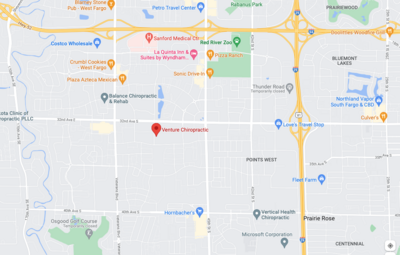
Tongue and lip ties have been shown to hinder the breastfeeding relationship and can result in issues seen later in life as well. Recent research shows that there are different kinds of ties, many of which are overlooked in infancy. Tethered oral tissues (TOTS) can either be a tongue tie or a lip tie that restricts proper movement of the tongue or lips. When the tissue is normal, it is elastic and does not interfere with movements of the tongue, which is necessary for sucking, eating, cleaning food off teeth, swallowing, and speech.
TOTs often runs in families and is considered a ‘mid-line’ defect, meaning the center or core of the body is affected. The tension caused by the tethered tissues can cause long-lasting structural changes to the neck, cranium, and face. TOTs can also affect the subtle pumping action of the cranial bones. This action is vital for moving cerebral spinal fluid throughout the brain and spine and moving toxins away from the brain. Connecting with a craniosacral therapist who has knowledge in this area is a great asset to your health care team. Also, if there is a known genetic component making sure you are taking folate NOT folic acid is important. Folate can be found in its natural form in dark green leafy vegetables, but supplementation may be necessary, as well.
Oftentimes, pediatricians and even some lactation consultants unknowingly miss recognizing these ties, which can result in decreased milk supply, frustration, and eventually an end to breastfeeding. Pain is often the first reason that 10-26% of moms have reported stopping breastfeeding within the first three weeks due to pain associated with latch. It is important to remember some infants with TOTs do not cause pain to mom, but other symptoms may be present. Dr. Ghaheri is very well-versed in ties and is known as an expert in the field. He explains why these issues are so commonly missed here: http://www.drghaheri.com/blog/2016/1/2/how-the-system-can-fail-breastfeeding-families. Typically, there is at least one symptom that alerts mom that something is not quite right with breastfeeding. While many of these symptoms can have other causes, it is important to rule out ties when at least one of them is present. Mom or baby could have one or multiple symptoms listed below:
Mom’s Symptoms:
- Cracked/blistered/bleeding nipples
- Plugged ducts
- Discomfort while nursing
- Sleep deprivation (because baby is not able to nurse efficiently, they may compensate by nursing more often, including at night)
- Thrush/Mastitis
- Compromised milk supply
Baby’s Symptoms:
- Reflux or colic
- Difficulty latching
- Gumming or chewing nipples
- Gassy
- Poor weight gain
- Makes clicking noises
- Choking on milk/popping off breast to gasp for air
- Milk leaking from corner of mouth when feeding
- Failure to thrive
Sometimes, parents may wonder if ties are really that big of a concern, especially if baby seems to be gaining weight well and breastfeeding seems to be going alright. However, tongue and lip ties affect more than breastfeeding. Even if a baby can breastfeed well and without causing pain, ties can affect jaw and dental development, breathing, chewing, swallowing, and digestion. Sometimes breastfeeding may seem to be going well and a baby can compensate for the poor range of motion for the first few months of breastfeeding when mother’s milk ejection reflex is still strong. If the baby is not emptying her breasts effectively, often by 3-4 months, mother’s milk supply will decrease, and her milk ejection reflex will be less strong, which can result in the baby not gaining weight well.
When ties are left untreated, more issues arise in adulthood. This is due to the result of old habits of compensation for inadequate tongue mobility. It is seen that the consequences of unrepaired tongue ties do not decrease with time. Instead, more difficulties are experienced as time passes. The specific challenges an adult with a tongue tie may face include:
- Inability to open the mouth widely, resulting in difficulties with speech and eating habits
- Inability to speak clearly when talking fast/loud/soft
- Difficulty talking after drinking even a small amount of alcohol
- Clicking in the jaw
- Migraines
- Dental health issues including inflamed gums and increased need for fillings and extractions
- Difficulty keeping dentures in place in the elderly
When I work with children with tethered oral tissue my primary goal is to ensure proper movement of joints and function of the surrounding soft tissues. A tethered cord can lead to muscular tension and misalignment of spinal segments. Pressure on nerves and misalignment of the bones that facial muscles connect to will disrupt the flow of latching, sucking, swallowing, and breathing. By using a light pressure, specific contact points, and gentle adjusting techniques, I improve movement of the surrounding tissue reducing stress on the cranial bones, spinal joints, jaw articulations. I also may stretch the muscles within the mouth and cervical musculature. I am passionate about educating parents on how to assist the baby with exercises and muscle work. It is important for me to involve the parents or caregiver in the process to keep care as active as possible, so families can maintain their progress. Prior to any revision, my focus is identifying an issue, working to reduce tension and improve mobility through adjustments, manual muscle work, and exercises or making the proper referral if needed. Maintaining proper mobility and alignment of the spine will result in faster healing and proper function of the surrounding muscles as well as the tongue itself.
If you have any questions about the information you see here, please contact me at 701-730-3867. I have a network of health care professionals who are well-versed in TOTs and ready to help you and your baby thrive!
~~Dr. Melanie Dockter, DC CACCP




